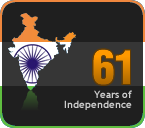The UNCLOS (United nations convention on the law of the seas) convention, is a relatively new convention when you consider SOLAS or MARPOL. The Convention was passed in 1982, but only adopted in 1994. So really speaking its not even 20 years since it has started appearing in the courtrooms. Inspite of this, the convention is probably something that affects us more profoundly then any other convention.
As described by the UN during the 25th anniversary of the convention :
"The United Nations Convention on the Law of the Sea … is perhaps one of the most significant but less recognized 20th century accomplishments in the arena of international law.... Its scope is vast: it covers all ocean space, with all its uses, including navigation and overflight; all uses of all its resources, living and non-living, on the high seas, on the ocean floor and beneath, on the continental shelf and in the territorial seas; the protection of the marine environment; and basic law and order.... The Convention is widely recognized by the international community as the legal framework within which all activities in the oceans and the seas must be carried out."
Recently UNCLOS has been in the news quite a lot.
One place where this is being brought up repeatedly is the South China Sea between China and Philippines. There are further parties to the dispute, but the current round seems to be between the two of them. Philippines is claiming the Islands on Basis of UNCLOS wherein, the Islands fall on their continental shelf and thus belong to them. China on the other hand is basing her claim on the concept of "historical sovereignty", a concept which America is against. China is producing evidence of 2nd century BC Han dynasty maps showing the area under Chinese rule, whereas, there is not much in the American archives during that time frame.
The problem is that America cannot really harp on the adherence of UNCLOS in the international forum, because they have not yet ratified the UNCLOS. The US government is trying to rectify that. The Obama administration has got around to presenting this bill and the Senate is due to vote on the bill in the coming month. This is a huge thing in the US as most opponents to the convention are afraid that it will impinge on the American sovereignty and its ability to project force. Civil liberties and state liberties are very touchy subjects in US and while most republicans view it as another sell out of the national interests by the Democrats, the democrats are portraying the bill as vital for America to be on the same page as the international community and something the industry needs to feel secure in the American legal space.
As if there were less reasons for the Americans to worry about, there are moves to actually change UNCLOS itself. One of the strongest pushes for this has come through Greenpeace and this is also being supported by the EU. Greenpeace is trying to change the UNCLOS in two ways. One, it is trying to limit developement and management of resources in the continental shelf. This is tricky because states have already laid claim to these resources. For example Greenpeace wants to limit development in the Arctic region which would severely limit countries such as Russia and Greenland to dig for oil or other resources. Greenpeace is also pushing for the convention to address how resources in the deep seas are to be managed. For example, there are no restrictions on over fishing in the deep
There is a natural reluctance in most parties as to amendments, but it will be interesting to see how the situation turns out over the next few months.
Sources :
http://www.greenpeace.org/international/en/publications/reports/suggested-draft-high-seas-impl/
http://www.maritime-executive.com/article/shipping-s-environmental-impact-is-well-regulated-by-imo-and-unclos-should-be-left-alone-says-ics
http://www.thenewamerican.com/usnews/foreign-policy/item/11824-will-our-freedoms-be-lost-at-sea
http://en.wikipedia.org/wiki/Spratly_Islands_dispute
http://www.un.org/Depts/los/convention_agreements/convention_25years/unclos25years_info.pdf
 Yesterday It was a beautiful moon out here in Singapore & I as I showed it to my 3 year old daughter, I told her about how Niel Armstrong had gone all the way over to it. Her first question was,
Yesterday It was a beautiful moon out here in Singapore & I as I showed it to my 3 year old daughter, I told her about how Niel Armstrong had gone all the way over to it. Her first question was,





